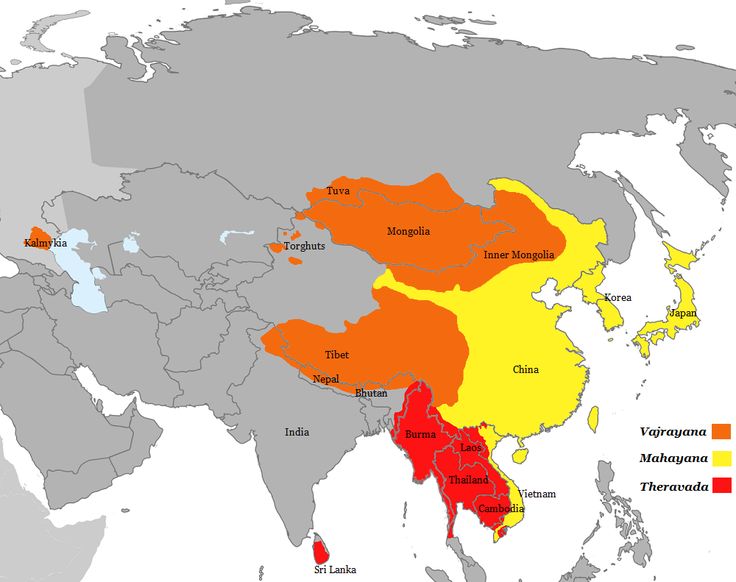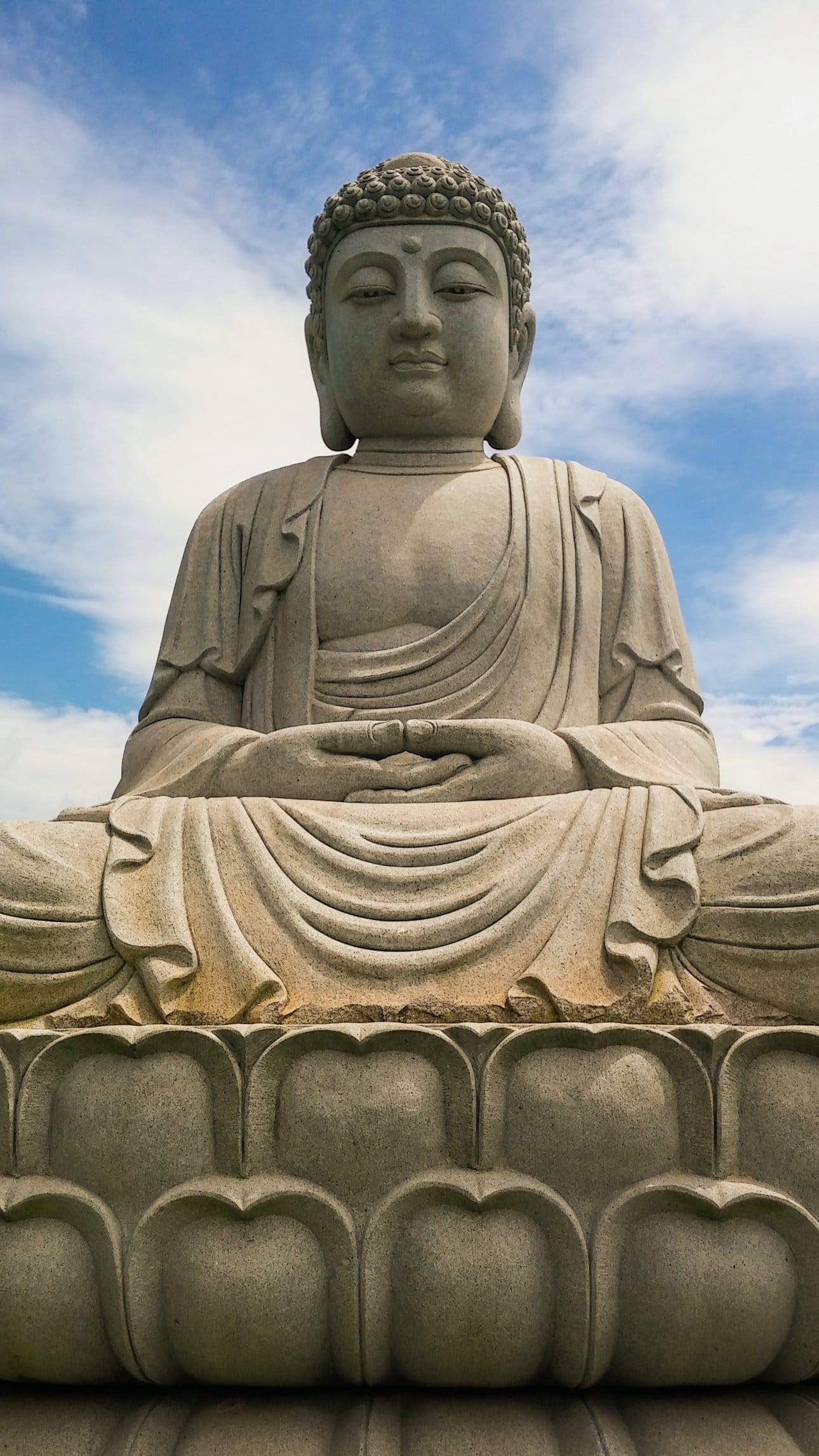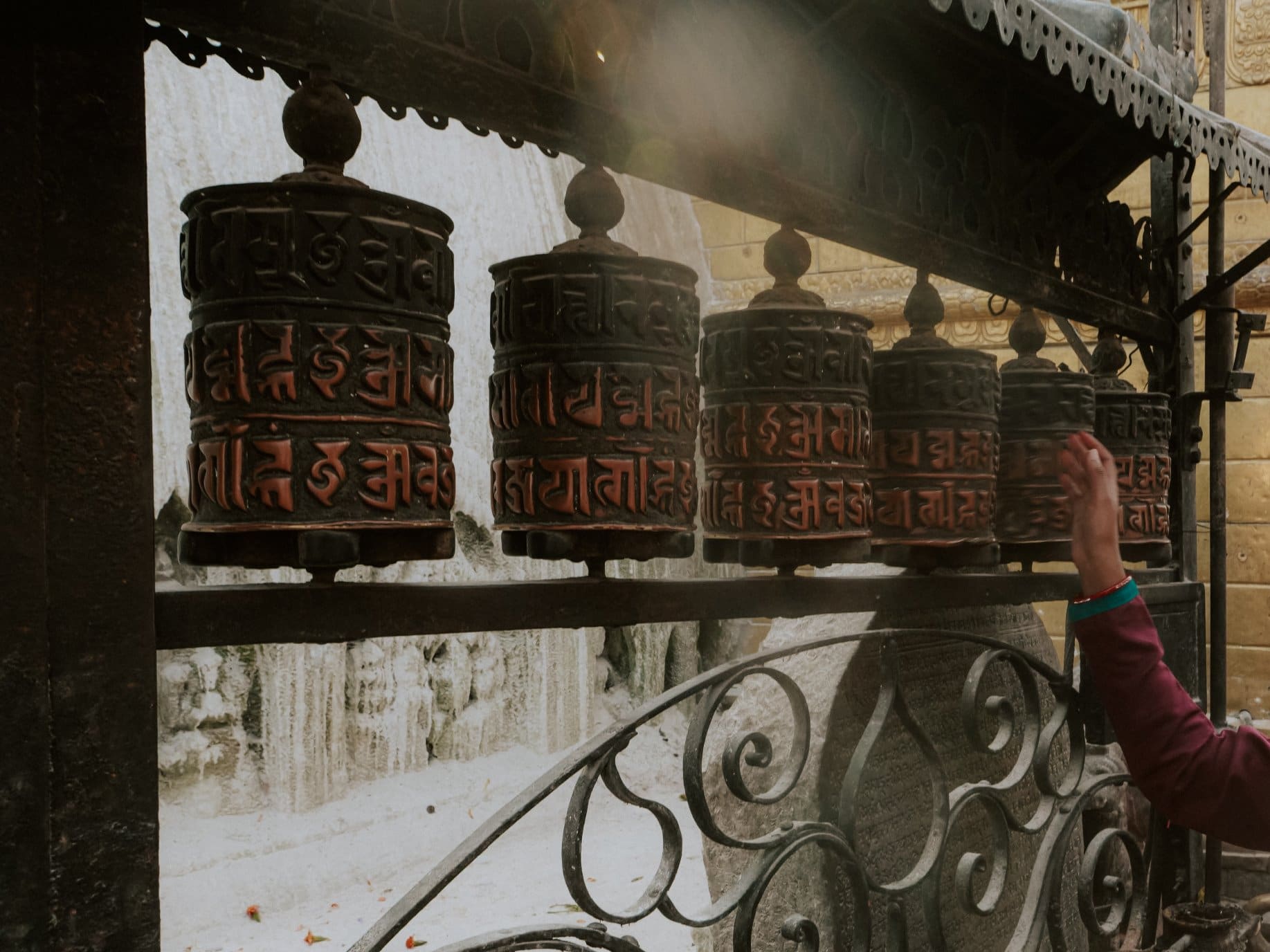
Buddhism was established by Siddhartha Gautama approximately 2500 years ago, 563-483 B.C.E. It is the fourth largest religion in the world. Buddhism Originated in India and quickly spread across Asia and the rest of the world. The belief system has no specific deity or god. Instead, it focuses on human suffering, rebirth, and enlightenment.
As an Indian prince in the fifth century B.C.E Siddhartha Gautama, or Buddha, renounced his title and wealth after seeing the suffering of people poor and dying and traveled as a beggar. Unsatisfied with the end of both spectrums, Buddha found the “Middle Way” to be the most enlightened path as a way of life between the two extremes. He reached this state of enlightenment, or nirvana, through deep meditation underneath a Bodhi tree, the tree of awakening, in Bihar, India. Buddhism is estimated to have as many as 506 million followers.
The Foundations of Buddhism
Buddha’s teachings laid the foundation for the religious movement known as Buddhism. These teachings, known as dharma, focus on the virtues of wisdom, kindness, patience, generosity, and compassion. Buddha’s most important teachings are the Four Noble Truths:
- the truth of suffering (dukkha), everyone in life is suffering in some way
- the truth of the cause of suffering (samudāya), all suffering comes from desire (tanhā)
- the truth of the end of suffering (nirhodha), stop suffering, and achieve enlightenment
- the truth of the path that frees us from suffering (magga), the Middle Way and Eightfold Path
Buddhists also believe in the wheel of rebirth. This is the idea that souls are born again into different bodies depending on their karma or how good or bad a person’s actions were in their past. Once one has achieved a state of inner peace and wisdom or nirvana, they can escape the cycle of suffering and rebirth forever. Meditation, morality, and wisdom are the goal while on the path to enlightenment, and the practice of meditation is believed to awaken truth. Followers can worship in temples with Buddhist monks or bhikkhus, or they can worship in their own homes. Because there are various philosophies and interpretations, Buddhism is considered a tolerant and evolving religion.
Karma versus Damnation
Whether you practice Theravada, Mahayana, or Tibetan Buddhism, all faithful Buddhists choose to live by Five Precepts that prohibit the following: killing living things, stealing, sexual misconduct, harmful speech, and using drugs or alcohol. The Eightfold Path further guides Buddhist followers on their path to enlightenment:
- Right understanding (Samma ditthi)
- Right thought (Samma sankappa)
- Right speech (Samma vaca)
- Right action (Samma kammanta)
- Right livelihood (Samma ajiva)
- Right effort (Samma vayama)
- Right mindfulness (Samma sati)
- Right concentration (Samma samadhi)
These ideals teach the ethical conduct, mental discipline, and wisdom needed to end suffering. It is a religion of morality. Those who practice it do so for the good of many as a means and aid in elevating oneself. These teachings do not warrant damnation or curses but simple actions that are easy to understand. Karma is the result of poor actions, and that karma depends more on intention than the action itself. Buddha encourages his followers to remain vigilant of their actions and deeds, “O monks and wise men, just as a goldsmith would test his gold by burning, cutting and rubbing it, so must you examine my words and accept them, not merely out of reverence for me.” - Dhammapada v. 183

Buddhism and Homosexuality
You will not find anything from Buddha on homosexuality. Sexual orientation and homosexuality were not elaborated on explicitly by the Buddha and is not referenced in the scriptural texts that contain his teachings. Buddhist monks and nuns take vows of celibacy and do not have sexual relationships with anyone, but those teachings are not targeted toward LGBTQ individuals specifically. The ‘rules’ around Buddhism and homosexuality are unclear. Still, the third precept regarding sexual misconduct is often referenced regarding LGBTQ issues. Keep in mind that harm, exploitation, and manipulation of others are considered a direct violation, and there is no distinction between same-sex and opposite-sex couples.
Equally notable is the evolving and complex perspective of the Dalai Lama in Tibetan Buddhism. When it comes to Buddhism and homosexuality, he has publicly condemned violence toward members of the LGBTQ community but has also stated that homosexuality was considered sexual misconduct for Buddhists in 1997. Yet, he has also shown a willingness to consider the possibility of some teachings and made more recent statements in support of gay marriage in 2014. Overall, it is difficult to say whether homosexuality in Buddhism is supported or prohibited. Still, most literature favors personal decisions over religious statements due to the core belief that attaining enlightenment is a path that is largely personal along with one’s beliefs.
